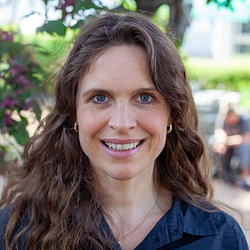
Nyhet -
Ny Distansutbildning från Down Syndrome Education: 0-5 år
Supporting early development for children with Down syndrome from birth to 5 years
De första åren är en kritisk utvecklingsperiod för alla barn. Barn med Downs syndrom har försenad utveckling från födelsen och behöver extra stöd. Forskning ökar vår förståelse av dessa utmaningar och vilka interventioner som fungerar. Kursen går igenom hur Downs syndrom påverkar den tidiga utvecklingen, och vad det innebär för ett effektivt stöd till unga barn med Downs syndrom från födelsen.
Distansutbildningen vänder sig till alla professioner som hjälper barn med Downs syndrom från födelsen till 5 års ålder – förskollärare, barnskötare, logopeder, talpedagoger, psykologer, arbetsterapeuter, sjukgymnaster, personal och volontärer i organisationer som supportar barn med Downs syndrom, och föräldrar som vill ha råd baserade på aktuell forskning.
Kursen ges on-line och innehåller 10 moduler som var och en innehåller en videopresentation, dokumentation (presentationer, checklistor, tips om fördjupningar, andra resurser, och referenser till forskning) och ett test. Dessutom uppmuntras kursdeltagarna att delta i ett diskussionsforum med handledare från DSE för att få möjlighet att ställa frågor och söka ytterligare råd. Kursdeltagarna bör planera att ägna minst 20 timmar åt studierna (2 timmar per vecka i tio veckor) för att slutföra kursen och testerna. Certifikat utfärdas när alla moduler är avklarade. Man har max 26 veckor på sig att genomföra kursen. Kursspråk är engelska.
Kursinnehåll:
1) How does having Down syndrome affect development? - how having Down syndrome may influence children's development and learning, including an overview of common health issues and how they may influence development and an introduction to early social, motor, language, working memory and cognitive development for children with Down syndrome.
2) Supporting social and emotional development - supporting social development from the first weeks of life through to starting school, including relating to both adults and children, learning to fit into the social world, play and friendships, managing emotions, developing age-appropriate behaviour and how to prevent or change difficult behaviours.
3) Learning to talk - how language learning may be influenced by having Down syndrome and provides practical guidance on how to support children with Down syndrome at each stage from understanding first signs and words to developing sentences and grammar.
4) Developing speech and verbal short term memory - speech skills begin to develop from the first weeks of life and this module explains speech development and suggests activities to improve discrimination and production of speech sounds and words - it also explains the links between speech and verbal short-term memory (VSTM) and describes activities which may improve VSTM development.
5) The importance of books and teaching early reading - how to teach early reading to provide a basis for developing reading in school, including teaching sight words and letter-sounds and first phonics and how to use reading to develop language.
6) Developing number and math skills - explains each of the steps children have to go through to learn to count and to begin to understand the number system and aspects of maths, time and money - sets out activities to support the children's learning about numbers 1 to 10 in small and structured steps to provide a solid foundation to build on in school.
7) Encouraging motor development and independence in preschool - how to support motor progress and how to encourage practical independence as motor skills improve including at meal times, washing, dressing and toilet training.
8) Supporting play and cognitive development - how children learn through play and the benefits of a responsive teaching approach - practical strategies for supporting play, improving attention and encouraging persistence in play and problem solving - describes activities to teach early colour, size and shape concepts, ordering and sequencing to support maths learning.
9) Effective education and inclusion - considers the ways in which early years and preschool settings need to prepare to support the learning and development of a child with Down syndrome whether they are in special or mainstream settings including the use of appropriate assessments and addressing staff training needs - considers the key factors which contribute to successful inclusive practice.
10) Families, support and a shared vision - discusses the research on how families respond to and are affected by bringing up a child with Down syndrome - presents a vision of our children’s futures and puts the information covered in the course into the context of preparing child with Down syndrome to lead a full and meaningful life with the same rights and needs as everyone else.
Kursen leds och stöds av professor Sue Buckley – en internationellt erkänd expert på utbildning för barn med Downs syndrom.
Kursen kostar £200 (£240 inkl. moms) per deltagare. När en förälder anmält sig får partnern delta gratis. En organisation som anmäler 3-4 deltagare får 30% rabatt. Om man anmäler 5 eller fler deltagare så lämnas 40% rabatt.
Läs mer på Down Syndrome Educations hemsida.
Relaterat på Svenska Downföreningens hemsida: Distansutbildning från Down Syndrome Education – Effective education for children with Down syndrome in school
